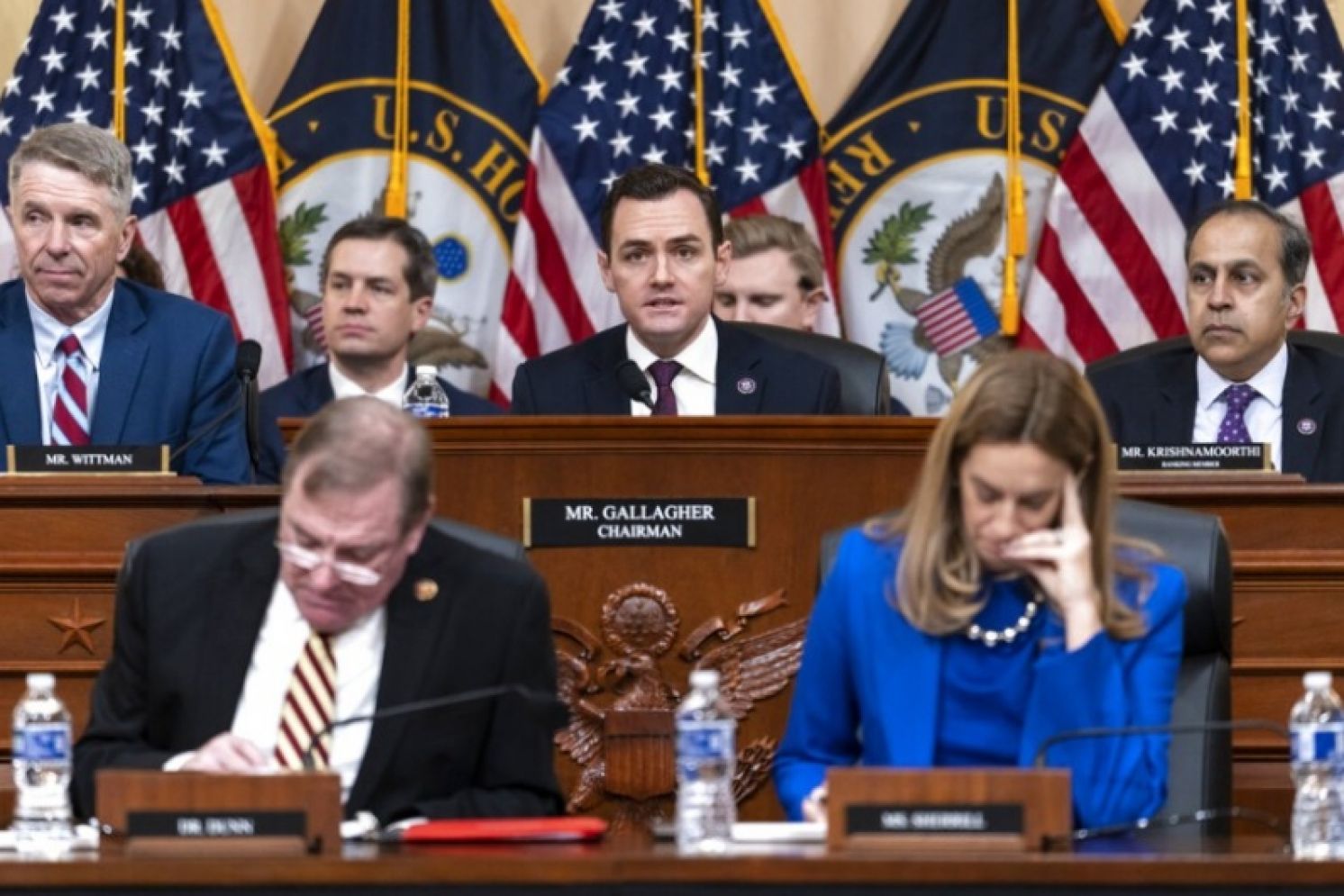
U.S. Lawmakers to Discharge Duties in Taiwan:Does President Tsai Still Have Sovereignty in Mind?
United Daily News Editorial, February 23, 2023
The Washington Post reported that U.S. House Representative Mike Gallagher, Chairman of the House Select Committee on Strategic Competition between the United States and the Chinese Communist Party, made a low-key visit to Taiwan last weekend. Mr. Gallagher revealed two important pieces of information: First, House Speaker Kevin McCarthy may visit Taiwan after the presidential election early next year; second, Mr. Gallagher plans to hold a hearing in Taiwan before this summer, the results of which will provide more information for Mr. McCarthy's visit to Taiwan.
Both Speaker McCarthy's potential visit and the House Select Committee's possible hearing in Taiwan will have implications for U.S.-China-Taiwan relations as well as the Taiwan Strait security. While the two issues had been discussed separately in the past, Mr. Gallagher pointed out that the results of the hearing would be reported to Mr. McCarthy, allowing him to better plan his visit to Taiwan. In other words, the timing of the two events has a specific meaning. Mr. Gallagher did say that Mr. McCarthy "can go if he wants to," but the hearing will surely pave the way for Mr. McCarthy's visit.
Mr. Gallagher's discreet visit to Taiwan was prompted by the controversy sparked by then-House Speaker Nancy Pelosi's visit last year. Similarly, Mr. McCarthy's visit to Taiwan (which may come this spring or early next year), will most likely trigger a crisis in the Taiwan Strait. Early next year, however, may be a relatively better timing, since at least Taiwan’s upcoming general election will not be affected by it. In last year’s local election, the so-called “Pelosi effect" nullified the "resist China to protect Taiwan" tactics, causing the landslide defeat of the ruling Democratic Progressive Party (DPP). And right now the DPP is preventing it from happening again.
The risks associated with Speaker McCarthy's visit to Taiwan early next year, nevertheless, is still unpredictable. If the DPP wins the presidential election, and Taiwan embarks on Vice President and DPP Chairman William Lai’s "pragmatic work on Taiwan independence," and Mr. McCarthy also comes to congratulate him, all these will provoke Beijing to a further extent. Consequently, a huge storm in the Taiwan Strait may be set off. On the other hand, if the Kuomintang (KMT) wins, it will be a different picture. Considering the DPP's futile reliance on the United States for Taiwan independence, Beijing's protest may probably be a mere formality; the U.S., China, and Taiwan will be able to enjoy temporary peace.
Holding the hearing in Taiwan should be the focus of Mr. Gallagher's secret visit. Up till now, the President's Office only confirmed that President Tsai Ing-wen and Vice President Lai had held cordial talks with Mr. Gallagher separately, failing to express any stance on the hearing. It seems that the Office of the President has extended a warm welcome to Mr. Gallagher’s intentions. If that is the case, do President Tsai and Vice President Lai still have the sovereignty of the Republic of China in their minds?
A hearing is an important procedure and method of legislation in Congress, and a pivotal duty of its members as well. Members of Congress may hold on-site hearings outside of Congress for various reasons. A senior Congressional staffer told the press, however, since House rules do not allow committees to spend funds overseas, hearings have never been held abroad before. Instead, the Congress may choose to form delegations to pay foreign visits and hold roundtable discussions or some other activities there.
Regardless of whether Mr. Gallagher will break U.S. Congressional rules or if it's a case of "one meeting, two signs," what Taiwan should be concerned about is that the U.S. lawmakers plan on coming to Taiwan to discharge Congressional duties as if Taiwan were already a U.S. territory. How will the Congress invite, summon, or regulate our experts to participate in the hearing? Should our diplomatic and national security officials accept such invitations, summonses, and related regulations? Where does this place the sovereignty of the Republic of China? How should the Tsai administration welcome or even kowtow to it?
The vast majority of people of Taiwan are looking forward to upgraded U.S.-Taiwan relations, and they heartily welcome the visit of U.S. lawmakers at the right time. Nevertheless, they definitely don't want such acting to bring along another storm in the Taiwan Strait. The least the Tsai administration could do is to guard up its sovereignty and national dignity.